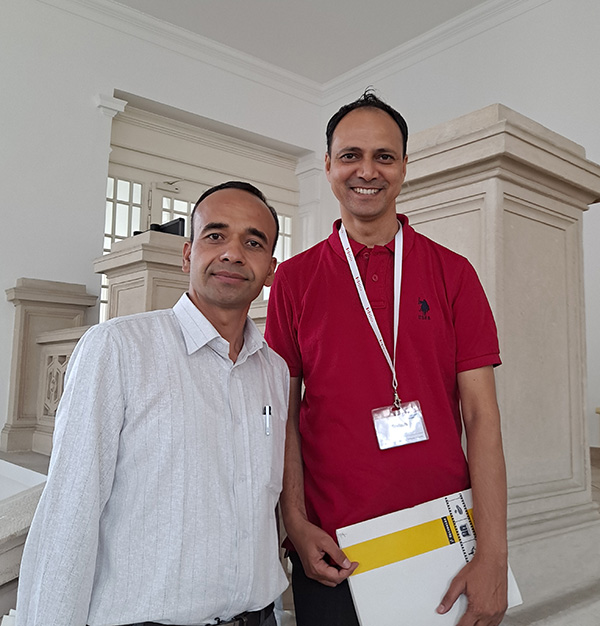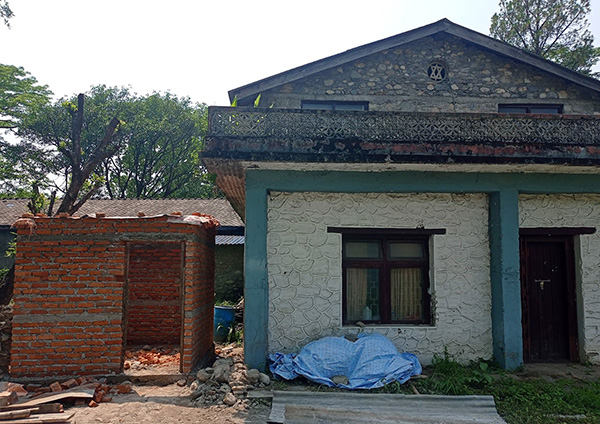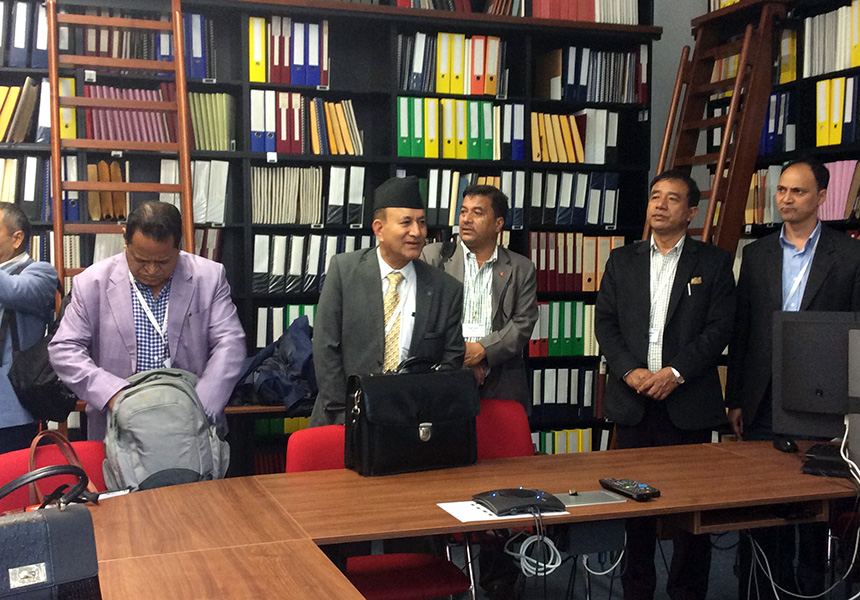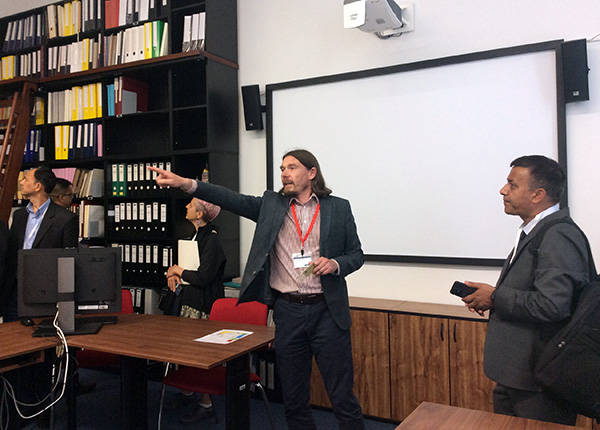Nepalese partners benchmarked Teiresias Centre of Masaryk University
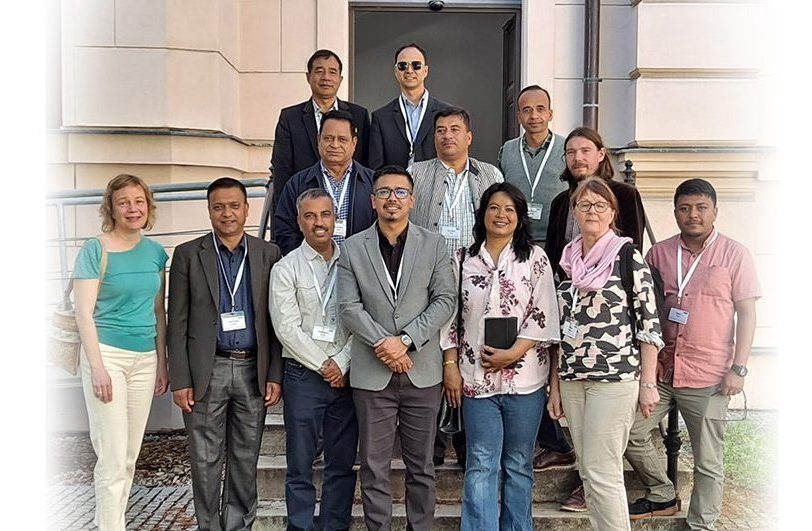
The EATHEN partners from Kathmandu University, Tribhuvan University and Nepal Open University from Nepal, the University of Bologna from Italy, and JAMK University of Applied Sciences from Finland got together in the Czech Republic for the first time since the beginning of the pandemic to benchmark the Teiresias Centre of the Masaryk University. The visit gave the team a possibility to get insight into developing services for the five support centers that will be created during the EATHEN project in Nepal to provide equal access to higher education for students with disabilities and from marginalized groups.
The Teiresias Centre (the official name is the Support Centre for Students with Special Needs) provides services for all students of Masaryk University with sensory and other disabilities. Its mission is to guarantee accessibility of all study programmes of the university.
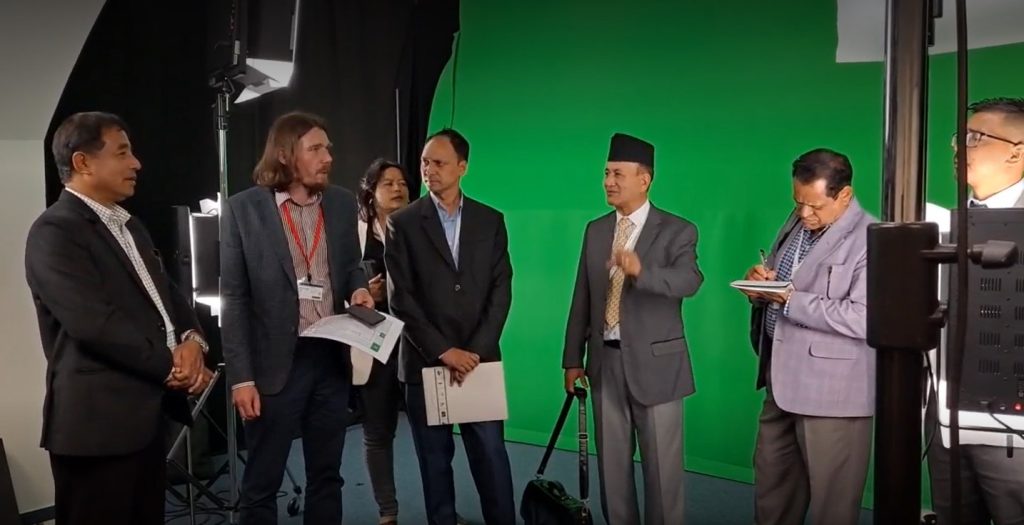
Mr Sudesh Pandit has come to Teiresias Centre to explore new ideas for developing services for the support centre at the at the Prithvinarayan (PN) campus of Tribhuvan University in Pokhara in the Western part of Nepal.
– This environment is very different from what we have in Pokhara. I have seen very interesting solutions, but they are expensive. The needs of our students are also very different, so we need to think how we can develop and provide the services locally, Mr Pandit says.
Mr Pandit, who is the coordinator of the Pokhara support center, explains that many of the challenges in his area arise from poverty. Since most of the students with disabilities come from a very poor background, Mr Pandit stresses that these students need to be supported by the university during their studies, so that they can eventually get a job and support their families. He emphasizes the importance of cooperation between the students, their parents and the teachers and other staff to better understand how the university can support students before and during their studies.
– After discussions with a student and parents, I have been able to recommend that a student should apply for a study place at the university. This is because I know how we can support the student during the studies. The support centre will help us here, he says.
The takeaways from the visit include the possibilities assistive technology can give for students with disabilities and the use of tactile learning materials.
-I am planning to produce tactile materials locally, Mr Pandit says.
Mr Kewal Ram Parajuli, who is responsible for the development of the support centre at the Dhankuta multiple campus of Tribhuvan University at the Eastern part of Nepal, explains that the development work is proceeding well in Dhankuta. He has visited two districts and met students to better understand what kind of support they needed. The support centre has already been allocated a room and an accessible toilet has been planned for it, but the introduction of assistive technology is delayed due to the pandemic. During his visit to the Teiresias Center, Mr Parajuli has focused on exploring how assistive technology is used at the Teiresias centre and he has attended hands on workshops to learn to use such technology.
– The free software that I have used here could also be used to support our students in their studies. We could for example use hybrid books that include learning resources in different formats, such audio material for blind students and sign language videos for deaf students. I am also considering using screen readers to help blind students convert text to speech and other assistive technologies to help them type text.
During his visit to the Teiresias Centre, Mr Parajuli has noticed diverse ways of giving guidance to students with disabilities and the digital services of the library.
-Teiresias Centre is very inclusive, he concludes.
The team will continue the visit from the Czech Republic to Italy to benchmark University of Bologna.
Listen to Mr Parajuli’s experiences at the Teiresias Centre on this video.
Authors:
Sudesh Pandit, Lecturer, Tribhuvan University, PN campus Pokhara, Nepal (Coordinator of support center EATHEN )
Kewal Ram Parajuli, Lecturer, Tribhuvan University, Nepal
Tuulia Kiilavuori, Senior Lecturer, Jamk University of Applied Sciences, Finland
